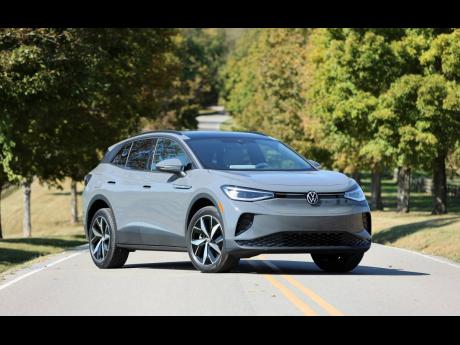The most affordable EV for 2023
The push for new, appealing electric vehicles has gained considerable momentum recently. The next few years will see a rollout of EVs in every popular automotive segment, increasing competition and decreasing prices. At the moment, however, all-electric vehicle development costs remain high, and most new additions are priced well above equivalent gas-powered models.
That means the list of economical EVs isn’t yet extensive, but it does include a handful of cars starting under US$40,000.
Helping pioneer the mass-production EV landscape in 2017, the Chevy Bolt EV tackled range anxiety and affordability in a practical package. The updated version introduced last year adds a more appealing interior ambiance while maintaining competitive range and zippy performance.
The Bolt EV isn’t perfect, with a firm ride and smallish cargo area, but it is now the least expensive electric vehicle for 2023 thanks to a huge price cut. We also proved the Bolt EV can travel 278 miles on a single charge, besting its EPA-estimated range by 19 miles. If the hatchback body isn’t appealing, Chevy also offers an SUV-like version, the Bolt EUV, which has more interior room. Starting price: US$27,495
The first-generation Nissan Leaf was a quirky car with a short range that attracted early adopters and those hoping to cash in on incentives, but the current model is much easier on the eyes and touts a respectable driving range.
We like the Leaf for its quiet, comfortable ride and many standard features. Fast charging won’t always be possible thanks to the Leaf’s less popular port design. The entry-level S trim is limited to just 149 miles of range, too. But Edmunds’ real-world test of the SV Plus model that has a bigger battery resulted in a useful 237 miles. Starting price: US $29,135
The Mini Cooper SE is an all-electric version of the regular Cooper Hardtop 2 Door. Being based on a regular Mini provides some benefits. It’s fun to drive and a cinch to fit into tight parking spaces. It’s also chic in the way that only a Mini can be. But there are downsides, too. Most significantly, the Cooper SE has a tiny trunk and back seat, making it the least practical EV on our list.
Shoppers should also be aware that the Cooper SE is pretty limited in range. Its EPA-quoted 114-mile range is quite a bit less than some competitors although Edmunds managed to get 150 miles from it in real-world driving. If space and distance aren’t major constraints, the Cooper SE’s daily driving entertainment might make it all worth it. Starting price: US$35,220
The Kona Electric is one of Edmunds’ favorite small EVs. Boasting a well-equipped cabin, nimble dynamics, and a composed ride, the Kona Electric makes a big value play for under US $35K. We were also pleasantly surprised by the Kona EV’s real-world range of 308 miles, which bests its EPA rating by about 50 miles.
Downsides include a tight back seat and a lack of availability in all 50 states. But bolstered by a long warranty period and excellent build quality, Hyundai’s electric crossover is an easier sell than some of its competitors. Starting price: US$34,885
Volkswagen’s first all-electric vehicle enters its third model year for 2023. Regardless of trim or battery size, the ID.4 offers impressive cargo and passenger space, useful standard driver assist features and a smooth ride. Buyers, though, might find the ID.4’s cabin controls to be frustrating and ample plastics to feel cheap.
The new entry-level S trim is rated at 209 miles of range and the longest-range rear-wheel-drive variant is rated at 275 miles. Our real-world test of the rear-drive model returned 287 miles on a single charge. Starting price: US$40,290.




